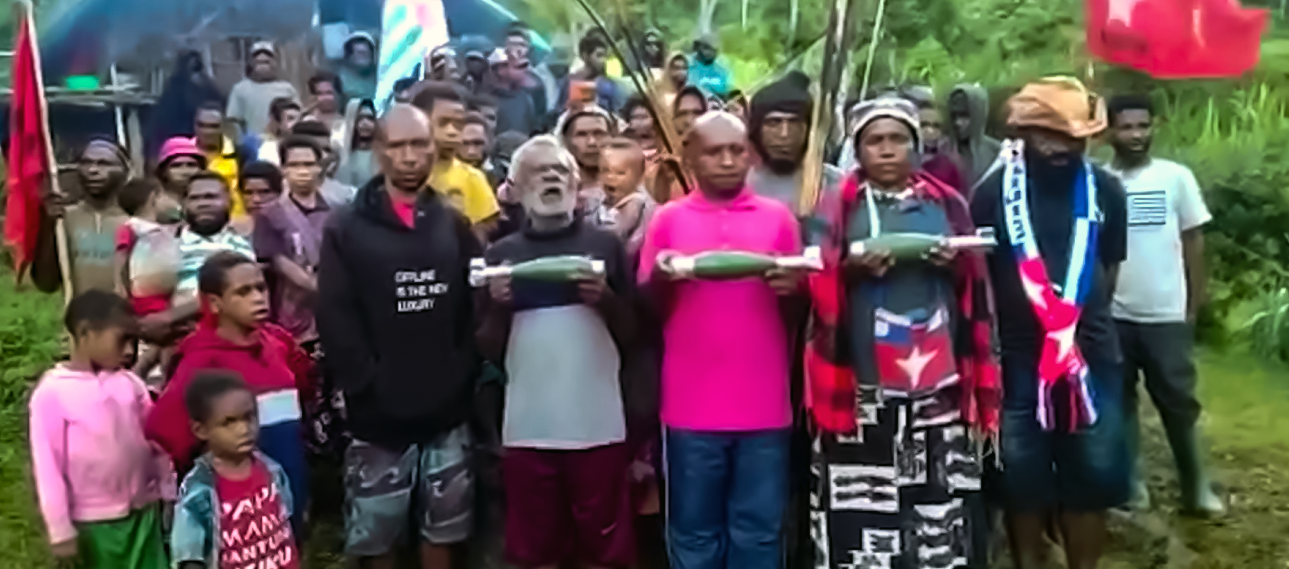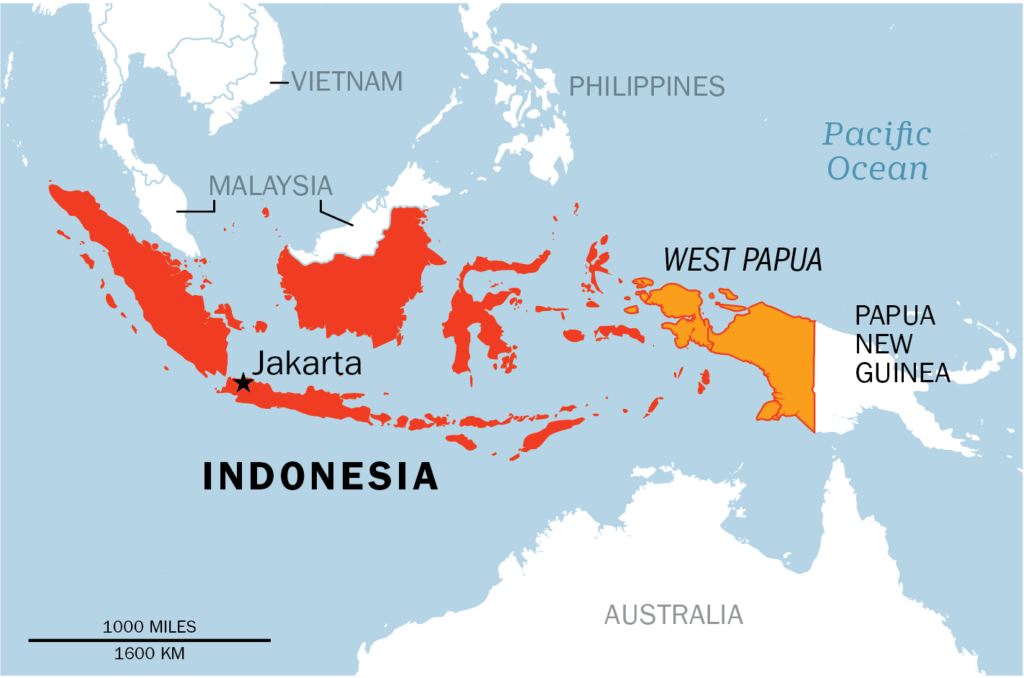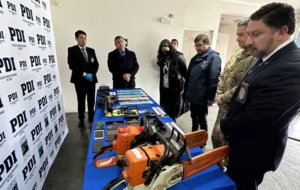
Indonesia: an State servant of imperialism, which applies genocidal policies
Featured: indigenous from West Papua denouncing the bombardments by the Indonesian State. Source: Free West Papua website.
During the last week there have been two attacks of national liberation organizations of West Papua against mining companies. On Monday 16th of October they attacked a gold mine, destroying the workers’ camp, trucks and other machinery, killing seven people and ambushing a police unit. On Friday 20th of October there was another attack on a worksite, killing one and hurting other three people. The Indonesian police said that the attacks have skyrocketed since last year.
These are just some of the recent actions of the people from West Papua, which struggles fiercely against the Indonesian State and the monopolies that act there. This year the case of the kidnapping made by these groups of a New Zealand pilot after burning his plane was well known. Afterwards, they demanded the cessation of all flights to the Paro airport and the independence of West Papua. During the past years there are numerous cases of peasant protests or mining proletarian protests, whose raise their voices against the mistreatment made by monopolies, and how the Indonesian government answer using the repressive forces, even the military, with brutality against the people of West Papua.
The people of West Papua was betrayed by imperialism after the Second World War, because after being a Dutch colony, and being occupied by the fascist Japan, they returned under Dutch control. But then, Papuans declared their independence in the 1961. In the year 1963 West Papua was put “temporary” under Indonesian control with UN supervision. Subsequently, a referendum was made in 1969 to decide whether its people wanted to be part of the Indonesian State or gain their independence, participating just 1,000 people, under coercion. Imperialism was complicit when approved the legality of such referendum and Papua “joined” Indonesia, being from this moment a killing-field of the Indonesian government, initiating genocidal and ethnic-cleaning policy. The local opposition was oppressed and expelled from their lands for mining projects and by the government at the service of imperialism. It is estimated that from these beginnings until 2016, 500,000 Papuans were killed.
These massacres and genocidal policies are not something from the past, the “Cold War” times or from the dictatorship of Suharto. They are clearly linked to imperialism. Therefore, today, Indonesia is a semi-colonial and semi-feudal country, and its government a servant of imperialism. They continue to perpetrate massacres and a brutal oppression against the people of Papua. There are numerous denounces of horrendous acts by the Indonesian repressive forces. These types of acts are not isolated cases, but part of the genocidal policy, as numerous activists for democratic rights and activists from the Papuan people reported: murder of children, kidnapping and murder of activists, mass expulsions of people and their substitution with settlers from other Indonesian islands such as Java, a firm military occupation, etc.
Of course, these genocidal policies had always the approval of the imperialist powers or at least their silent arrangement. For example, in 2021 the case of how Australian imperialism became public, closely linked to mining projects in the area, had all the details of a massacre committed, and ignored such information and hid them.

The Indonesian State has great interest in continuing to oppress, massacring and denying the freedom to the people of West Papua. This is because it is one of the areas with the most mining mega-projects, since this territory is well known for having a huge amount of mineral resources. In West Papua there is one of the largest nickel mining deposits in the country, in Raja Ampat, and one of the largest gold and copper mines in the world, Mimika. These huge mining projects have intensified the struggle of the people against the State and against monopolies, due to the enormous problems that this mining generates for the local people, such as expulsions of the people from their lands, health problems or destruction of their way of life such as land contamination, fishing resources, etc. We have already reported on the struggle of the people against these mega-projects in Indonesia.
In recent years, the number of large mining exploitation throughout the country has grown, specially with the increasing presence of Chinese social-imperialism, which is financing big mining projects, factories for processing the resources they are getting, as well as big infrastructures linked with “The New Silk Route”. The Indonesian government hides all of this under the halo of a national policy, which reinforces the exploitation of its own resources and their strategies, based above all on making use of large mining reserves. But the reality is that they are selling their land to the imperialists, and with it, they expel and massacre the peoples that inhabit them. The Indonesian case again shows how the States and the ruling classes of the semi-colonial and semi-feudal countries are at the service of and dependent on the imperialists. But in front of this, the people’s response is to persist in the struggle, as it has been in West Papua for decades.

